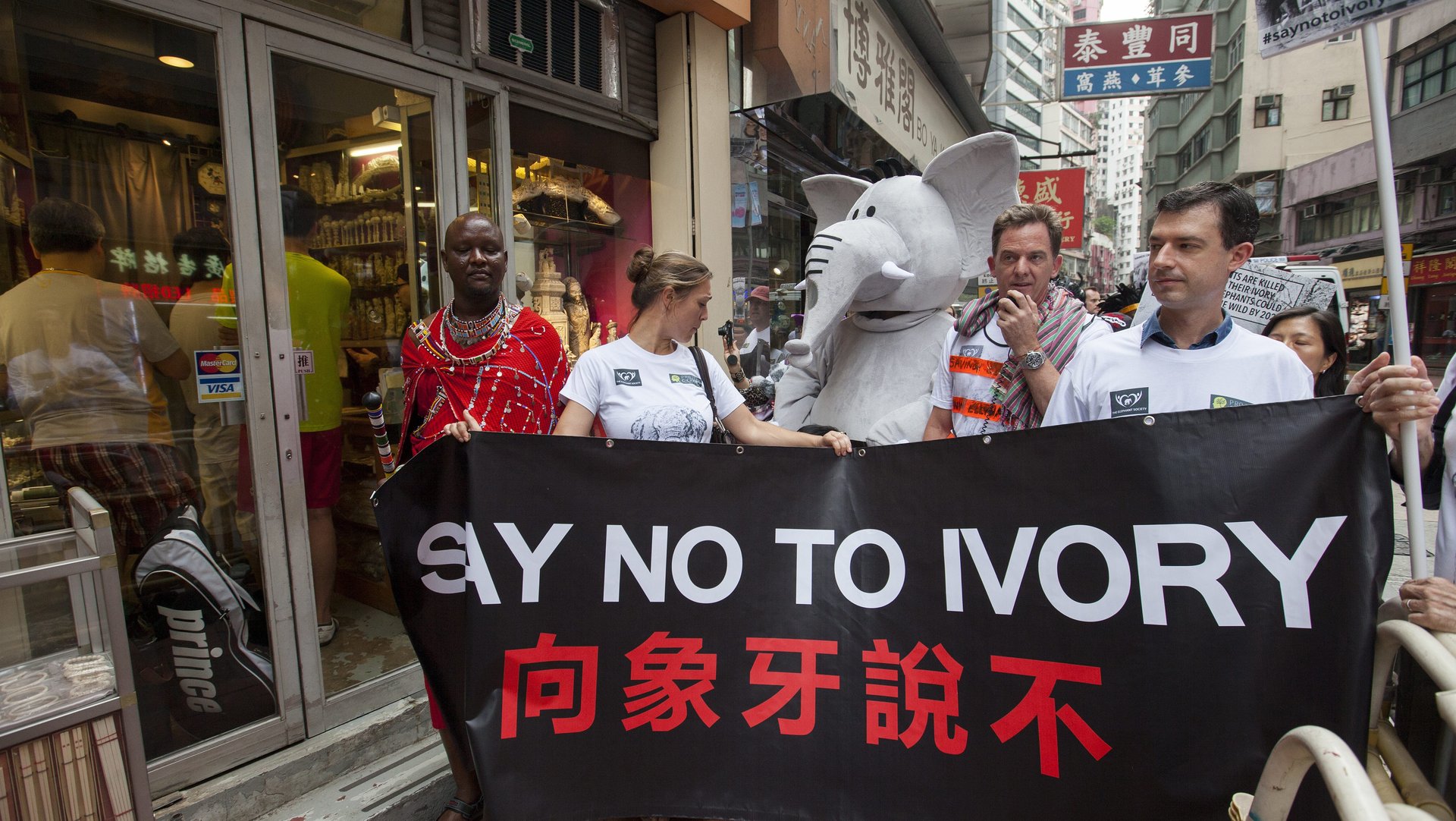Asia’s largest ivory market now wants to ban the trade completely
Hong Kong, the hub of ivory trafficking in Asia, is determined to put an end to the trade.


Hong Kong, the hub of ivory trafficking in Asia, is determined to put an end to the trade.
The city’s Executive Council, a policy-making group that advises the chief executive, approved a three-step plan on Dec. 21 to phase out the local ivory trade by 2022. The plan, first proposed in June, now awaits approval from the legislature next year.
The three steps of the plan are as follow:
- A ban on the import and export of hunting trophies and certain ivory carvings will be effective immediately.
- Within three months of the bill passing, the city will ban the import and export of Asian ivory acquired before 1975 and African ivory before 1976. This is referred to as “pre-Convention” ivory because these products were traded before an international treaty, the Convention on International Trade in Endangered Species of Wild Fauna and Flora, was ratified.
- The final step is to ban all possession of ivory for commercial purposes on Dec. 31, 2021 (pdf, p.6).
Hong Kong is considered the world’s largest ivory trading market, thanks to China, which has one of the most demanding appetites for ivory in the world, according to the World Wildlife Fund. Closing down the market might help ease that appetite as “all markets contribute to illegal trade and poaching,” said Susan Lieberman, vice president of international policy at NGO Wildlife Conservation Society, in October.
https://www.theatlas.com/i/atlas_E1t-AdiSg.png
Hong Kong has been slow to make progress cutting off the trafficking of illegal wildlife products. Until late last year, it still refused to acknowledge its status as a bustling hub for the trafficking of endangered species, and seizures of illicit wildlife products were up nearly 400% from 2014 (pdf, p. 9), according to a December 2015 report published by Greenpeace.